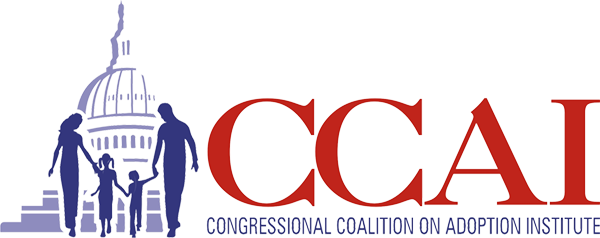BUILDING BRIDGES: STRENGTHENING KINSHIP CARE FOR FOSTER YOUTH WITH COMPLEX NEEDS
Research is clear that children fare best when they are kept with families. Kinship care, involving placements with relatives or familiar individuals, offers young people the opportunity to remain connected to their family, community, and cultures. Congress recognized the benefits of kinship care with the passage of laws like the Fostering Connections Act of 2008 and the Family First Prevention Services Act of 2018 (FFPSA). With FFPSA, Congress also recognized kinship care was a necessary and supportive alternative to congregate care settings, especially for children with disabilities. While the passage of FFPSA was crucial, further investment in programs like Treatment Foster Care are necessary to better support young people placed in kinship care, ensuring children remain in safe, supportive family environments.
THE PROBLEM & CURRENT LAW
In recent years, states have made great strides to prioritize family-based placements like kinship care, where children and youth are placed in the care of grandparents, aunts or uncles, or “fictive” kin (individuals who are known to the family) (Child Welfare Information Gateway, n.d.). This allows children and youth to be placed with those they know and love, leading to better outcomes and a sense of belonging within their communities. Kinship placements should always be prioritized unless a child’s needs cannot be met within the family. In tandem with these efforts, FFPSA made changes to reduce the unnecessary use of congregate care due to its detrimental impacts on children and youth. Research shows prolonged stays in congregate care settings are linked to increased risks of homelessness, incarceration, and substance use (Acklin, 2023). However, despite recent efforts and the passage of FFPSA, many children, especially those with intellectual and developmental disabilities, remain in congregate care and do not receive adequate support.
Children and youth with intelectual and or developmental disabilities are overrepresented in foster care and are more likely to be placed in congregate care, facing worse outcomes and experiences than their peers without disabilities. In 2016, there were nearly 40,000 children and youth in care with intelectual and developmental disabilities, making up 9% of the youth in care (Shea et al., 2024). This study also found that Black youth and females with intelectual or developmental disabilities faced higher rates of being in care versus their white and male counterparts (Shea et al., 2024). These children also experience higher placement disruption and longer periods in care than their counterparts without disabilities (Platt & Gephart, 2022). This, in turn, causes further developmental delays and allows for adverse impacts on children and youth in care.
Family-based settings should not be denied to children with developmental disabilities or unique needs. When given proper support, kinship placements can be a supportive alternative for these youth, leading to substantially better educational, mental health, and permanency outcomes (Winokur et al., 2014).
Additionally, due to their prior bonds, kinship caregivers are less likely to change their minds when faced with the difficulties of foster care, reducing potential placement disruptions, and providing more stability and security to young people in foster care (Guidry, 2019).
FOSTERING POTENTIAL AND CHAMPIONING HOPE: MENTORSHIP’S IMPACT IN FOSTER CARE
The foster care system needs to improve permanency options and establish structural support for older youth transitioning out of foster care. Existing supports are insufficient as recent outcome data show gaps in their educational, employment, and self-sufficiency needs. Mentorship programs can help address these gaps by providing guidance and support to youth preparing to exit the system.
THE PROBLEM & CURRENT LAW
For older youth, transitioning out of foster care is full of unknowns and can feel daunting navigating this transition. Structured mentorship can ease this transition, providing advocacy, guidance, and consistent support.
According to the National Youth in Transition Database (NYTD) survey, transition-aged youth in foster care face significant cha lenges (NYTD, 2023). While 89% of 19-year-olds and 87% of 21-year-olds report positive connections with caring adults, these connections often don’t translate into self-sufficiency (NYTD, 2023). At age 21, one in three youth receive significant government assistance, 30% have no employment experience, and 25% lack high school diploma or GED. This data shows that while positive connections are important, they are not enough. Structured mentoring that focuses on impactful outcomes is crucial.
Many older youth in foster care exit to adoption or guardianship, not because these are the best options, but because they are often the only options. Others remain in foster care because none of these options fit their needs. These youth have multivariate talents, needs and challenges that require alternative permanency options.
One promising option is the Support, Opportunity, Unity, Legal (SOUL) Relationship Family Permanency Option, which is being piloted in select locations in the U.S. by the Annie E. Casey Foundation, and it has been signed into law as a legal permanency option in the State of Kansas (The Annie E. Casey Foundation, 2022). That same report by The Annie E. Casey Foundation stated, “SOUL Family would establish a legal connection between a young person and at least one caring adult, ensuring young people exit foster care with a support system…Unlike adoption or guardianship, SOUL Family would a low young people to make these new connections without severing their legal ties with birth parents and siblings. When reunification is not possible, but maintaining bonds with loved ones and community is healthy and desirable, SOUL Family offers choices.”

